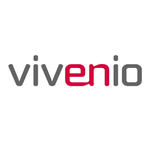Description

Eventtus

Oxford Abstracts
Comprehensive Overview: Eventtus vs Oxford Abstracts
Eventtus and Oxford Abstracts: Overview
a) Primary Functions and Target Markets:
Eventtus:
- Primary Functions: Eventtus is a platform designed for event management and engagement. It primarily focuses on offering solutions for attendee engagement through features such as live polling, Q&A, networking, chat, and event-specific newsfeeds. The platform also supports ticketing, agenda management, and event analytics.
- Target Markets: Eventtus targets a wide range of events including conferences, exhibitions, corporate events, and community gatherings. Its services cater to event organizers who seek to enhance attendee interaction and streamline event logistics.
Oxford Abstracts:
- Primary Functions: Oxford Abstracts specializes in abstract management and conference planning. The platform provides tools for the submission, review, and management of abstracts, as well as features for program building and conference scheduling. It also supports registration and provides analytics for event planners.
- Target Markets: Its target audience includes academic and scientific conferences, professional associations, and organizations that require robust management of research paper submissions and scholarly event logistics.
b) Market Share and User Base:
While specific market share and user base numbers can vary, both companies operate in the competitive event technology and conference management industry, which features several established players.
-
Eventtus: Known for its engagement-driven approach, Eventtus has positioned itself well in the Middle Eastern market and has been expanding globally. However, its user base is generally smaller compared to giant competitors in the event tech industry like Cvent or Eventbrite.
-
Oxford Abstracts: This platform has carved out a specialized niche within academic and research-focused events. Its user base is often specific to the academic community and scientific organizations seeking a reliable abstract management service, thus it may not command as broad a market share as general event management platforms.
c) Key Differentiating Factors:
-
Feature Focus: Eventtus emphasizes attendee engagement and interaction, offering more features around networking and real-time communication. In contrast, Oxford Abstracts excels in research-focused event management, particularly with robust tools for managing abstract submissions and peer review processes.
-
Market Use Case: Eventtus caters to a diverse set of events and industries, which might include those more focused on attendee experience enhancement. Conversely, Oxford Abstracts serves a niche market of academic and professional conferences where research presentation and the organizational aspect of scholarly communication are critical.
-
Technological Specialization: Eventtus provides a more generalized suite of event management features beyond abstract handling, including ticketing and agenda setting, making it versatile for different kinds of events. In comparison, Oxford Abstracts provides deep functionality in abstract and peer review management, which is less common in broader platforms.
In summary, while both platforms serve various aspects of event management, Eventtus is more focused on engagement and logistical facilitation for diverse events, whereas Oxford Abstracts is a specialist player in the academic and scientific conference space with a strong emphasis on abstract and program management. The choice between these platforms would largely depend on the specific needs of the event organizers and the nature of the events being held.
Contact Info

Year founded :
2017
+1650-815-4055
Not Available
United States
Not Available

Year founded :
Not Available
Not Available
Not Available
Not Available
Not Available
Feature Similarity Breakdown: Eventtus, Oxford Abstracts
When comparing Eventtus and Oxford Abstracts, which are both platforms designed for event management and engagement, there's a variety of similarities and differences in terms of features and user interface. Here is a detailed breakdown:
a) Core Features in Common
-
Event Management: Both platforms offer comprehensive event management capabilities, allowing users to plan, organize, and execute events efficiently.
-
Agenda Scheduling: They provide functionality for creating and managing event agendas, including session scheduling, speaker management, and timetable optimization.
-
Attendee Engagement: Both platforms emphasize attendee interaction through features like live polls, Q&A sessions, and feedback collection to enhance participant engagement.
-
Networking: Eventtus and Oxford Abstracts include networking tools that facilitate connections between attendees, such as chat functions, appointment scheduling, and messaging systems.
-
Mobile App Accessibility: Both offer mobile applications (or mobile-friendly versions) that help attendees stay updated on event schedules, network, and participate in interactive sessions on the go.
-
Registration Management: They have systems for handling attendee registration, ticketing, and payment processing.
b) User Interface Comparison
-
Eventtus: The user interface of Eventtus is generally designed to be sleek and intuitive, focusing on easy navigation and modern design aesthetics. It employs clean lines and a vibrant color scheme that appeals to a younger audience, emphasizing accessibility and interaction.
-
Oxford Abstracts: Oxford Abstracts may have a more straightforward, academic-oriented interface. It’s likely designed to handle complex abstract management more efficiently, and may not have as modern a look as Eventtus but offers robust functionality tailored for academic conferences.
Both interfaces provide user-friendly designs that cater to their respective target audiences, but Eventtus might be perceived as more visually engaging for general events, while Oxford Abstracts focuses on functionality suited to academic or scientific conferences.
c) Unique Features
-
Eventtus:
- Customizable Event Apps: Offers the capability to create tailored event apps that include features like branding and personalized content streams.
- Social Media Integration: Strong focus on integrating with social media platforms for broader outreach and engagement.
- Gamification: Includes gamification features to boost participant interaction and engagement during events.
-
Oxford Abstracts:
- Abstract & Paper Management: Specializes in handling abstract submissions, reviews, and publishing, making it ideal for academic conferences that require rigorous management of scientific papers and presentations.
- Multi-track Conference Support: Excels in managing multi-session and complex conference setups which are common in academic environments.
- Comprehensive Peer Review Workflow: Provides a robust peer review system for abstracts and papers, which is typically a requirement for scholarly events.
Each platform plays to its strengths; Eventtus leans towards general event engagement with more social, interactive features, while Oxford Abstracts is strong in academic conference management with detailed abstract and paper processing capabilities.
Features

Not Available

Not Available
Best Fit Use Cases: Eventtus, Oxford Abstracts
Eventtus and Oxford Abstracts are platforms designed to assist with event management and organization, but they cater to different needs and use cases. Here's how each platform could be best utilized:
Eventtus
a) Best Fit Use Cases for Eventtus
- Types of Businesses or Projects:
- Corporate Events: Companies looking to enhance the attendee experience during large-scale corporate events, like conferences, trade shows, or product launches, can benefit greatly from Eventtus. Its interactive features can be used to engage attendees effectively.
- Entertainment and Festivals: Music festivals, entertainment shows, and similar events with large audiences can leverage Eventtus for ticketing, engagement, and providing real-time updates to attendees.
- Networking Events: Because of its robust networking tools, business networking events such as professional gatherings or industry meet-ups can use Eventtus to maximize attendee interaction.
- Hybrid and Virtual Events: In the evolving landscape of events, Eventtus supports hybrid and virtual events, making it suitable for businesses adapting to these formats, ensuring greater audience reach and engagement without geographical limits.
d) Industry Verticals and Company Sizes
- Industry Verticals: Eventtus can be applied across several industries like technology, social events, media and entertainment, and more where attendee engagement, real-time updates, and networking opportunities are crucial.
- Company Sizes: It is versatile for both SMEs and large enterprises, as it provides scalable solutions for varied audience sizes and event scopes.
Oxford Abstracts
b) Preferred Scenarios for Oxford Abstracts
- Types of Events or Projects:
- Academic and Scientific Conferences: Oxford Abstracts is tailored for events that require extensive abstract management, such as academic and scientific conferences where managing large volumes of abstract submissions and peer reviews is crucial.
- Educational Symposia: Institutions or organizations hosting educational symposia or workshops would benefit from Oxford Abstracts’ features for organizing and categorizing large amounts of academic content.
- Research Forums: Any events focusing on research presentations and poster sessions, where managing speaker and session data is essential, can find Oxford Abstracts highly effective.
d) Industry Verticals and Company Sizes
- Industry Verticals: Oxford Abstracts primarily serves the education, academic, and research sectors—where abstract submissions and peer-reviewed presentations are key components.
- Company Sizes: More suitable for universities, research institutions, and large academic societies due to the nature of events that heavily emphasize peer-reviewed content management.
Both platforms aim to enhance event management, but their distinct features cater to specific types of events. Eventtus focuses more on engagement and networking, ideal for diverse industries and event types, while Oxford Abstracts specializes in academia-focused event management, dealing with the intricacies of scholarly content.
Pricing

Pricing Not Available

Pricing Not Available
Metrics History
Metrics History
Comparing undefined across companies
Conclusion & Final Verdict: Eventtus vs Oxford Abstracts
To provide a comprehensive conclusion and final verdict for Eventtus and Oxford Abstracts, let's evaluate both products based on the given criteria.
a) Best Overall Value
When determining the best overall value between Eventtus and Oxford Abstracts, the choice largely depends on the specific needs of the users. However, for a generalized perspective:
-
Eventtus is known for its robust event management capabilities, offering a comprehensive suite for engaging attendees through features like social networking, engagement metrics, and interactive agendas. It provides substantial value for event organizers prioritizing attendee interaction and engagement.
-
Oxford Abstracts excels in abstract management, offering powerful tools for managing submissions, reviews, and scheduling. This makes it highly valuable for academic and research-focused events where these features are paramount.
Verdict: If attendee engagement and interactive event experiences are your primary goals, Eventtus might offer the best overall value. Conversely, if your needs are centered around efficiently handling abstracts and scholarly conferences, Oxford Abstracts could be more valuable.
b) Pros and Cons
Eventtus:
-
Pros:
- Strong engagement features including real-time polling, Q&A, and networking.
- User-friendly interface for both organizers and attendees.
- Customizable agenda and schedule management.
-
Cons:
- May require more setup time for customizing features to fit specific events.
- Primarily focused on engagement, which might be overkill for events not centered around attendee interaction.
Oxford Abstracts:
-
Pros:
- Excellent tools for abstract submission and review workflows.
- Facilitates academic and professional conference scheduling.
- Reliable support for managing complex conference formats.
-
Cons:
- Primarily geared towards academic and research events, which might limit utility for general or non-academic events.
- Less focus on attendee engagement features compared to Eventtus.
c) Recommendations for Users
For users deciding between these two platforms, consider the nature and goals of your event:
-
Focus on Event Type: Determine if your event is more engagement-focused or academic-focused. For engagement-heavy, social events, consider Eventtus. For conferences requiring detailed submission and review processes, Oxford Abstracts is more suitable.
-
Evaluate Feature Necessity: Consider which features are essential for your event. If abstract management and detailed scheduling are your priorities, go for Oxford Abstracts. If you need tools that boost networking and interaction, Eventtus might be better.
-
Consider Budget and Resources: Analyze the cost vs. benefit of each platform in the context of your budget. Factor in the resources you have to set up and manage each platform.
-
Test and Trial: If possible, trial both products to see firsthand how they align with your event needs. Some platforms offer demo versions or trial periods.
By aligning your specific event requirements with the strengths of each product, you can make a more informed decision that maximizes value for your event.
Add to compare
Add similar companies



